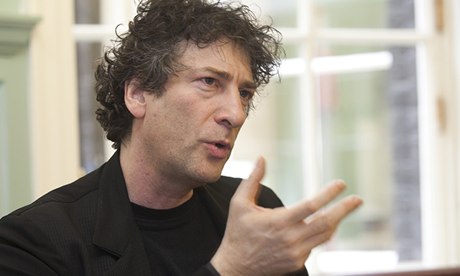With Valentine's Day just a week away and Britain's single men honing their (usually drunken) chat-up lines, Times foreign correspondents reveal how bachelors in other countries do it. We can learn something from them all - except, perhaps, Australia . . .
GERMANY
German men see the conquest of German women as an extreme sport, a physical activity that is up there with bungee jumping and paragliding. It boils down to three essentials: stamina, technique and the right kit. The charm thing doesn't really come into it, any more than it does with mountaineering. One chat-up line suggested by the much-visited German site Flirt-mit-mir (Flirt with me) is: "Your eyes are the same colour as my Porsche." Apparently this works quite well, even better than, "Do you want to see my gun collection?"
There is a growing awareness though that this might not be quite enough. The fact that Germany's most celebrated beauties are falling for foreigners (Claudia Schiffer for Matthew Vaughn, Heidi Klum for Seal) is beginning to be seen as a national problem. The columnist, Jochen Siemens, views German men as suffering from Caligynephobia (also known as Venustraphobia) – the fear of chatting up beautiful women. "The fact is that a beautiful woman undermines the illusion that one is leading a happy life," he says, "doubts begin to gnaw at us." And, since there is no chat-up line in the German language that can overcome this kind of brittle masculine self-confidence, the country is now brimming with flirt academies and seminars. Here, German men are taught supposedly romantic lines such as "Life is a big jigsaw puzzle – and you are the missing piece". And that it is not absolutely necessary to line up your mobile phones on the restaurant table, or casually drop your car keyring (with Jaguar symbol), or to flash photographs of your villa in Spain.
Surveys usually find that German women prefer men who listen to them. For all the obvious reasons this message has yet to be taken on board. But part of the problem, of course, is that German women cannot quite distil what they want from a man into a text-book formula. The journalists Stephan and Andreas Lebert recently interviewed women on this subject for their book Instruction on How to be Manly. One typical response: "A man shouldn't be a fretter, someone who is always asking how you are, or who is checking whether the yoghurt in the fridge has passed its sell-by-date. He should be able to show feelings and weaknesses, but not be a wimp, that's the worst, not a gossip, no, no, but he should have the gift of the gab, that's the most important, oh yes, and a sense of humour and, he should be, you know, a bit of a cowboy." That's it, then. Back to the classroom, Hans
Roger Boyes
UNITED STATES
Strategy, planning, opportunism, execution – all feature in the American heterosexual male's pursuit of the opposite sex. Take, for example, my American friend Jim's recent flight to Spain. On the plane was a conspicuously attractive Spanish attendant, who was receiving a great deal of attention from the Brits at the back. The Brits had calculated that if they ordered as much booze as possible from her, then with every repeat order, they would get more confidence and therefore another opportunity to charm her with their self-deprecation.
Jim had also taken a fancy to this stewardess. He was polite, he smiled, he made eye contact. He also made sure to get her name and repeat it often. And then, when the plane landed, he went straight to the newsagents' to buy an envelope, a pen, and some notepaper. At a nearby caf� he composed a letter to the airline congratulating it on its excellent cabin service – in particular the helpfulness and professionalism of a certain Spanish flight attendant, whom he named as a tribute to the values of the organisation. He included his name, number, and e-mail address, and posted the letter right there. Two weeks later the woman called him to say that his letter had earned her a bonus and that could she please go out for a drink with him next time she was flying through LA. "The idea just came to me, as soon as we landed," Jim explainsto me. "I didn't expect it to actually work."
Hogwash. American men know very well that this kind of thing works. The very fact that I have two American male friends who have successfully charmed flight attendants – a career that surely represents the most fortified beachhead of womankind's defence against unwanted romantic advances – suggests that it was no accident. In a culture where the drunk'n'lunge method most definitely doesn't work (although it has been known to happen), it's a necessity.
In terms of romantic pursuit, the American male is simply a more evolved creature than his British counterpart. It's been this way for a while: take the plot of Graham Greene's The Quiet American, in which the quiet American in question arrives in Vietnam and uses a letter-writing campaign to steal the girlfriend of the hero, a foreign correspondent for The Times. The key to the American strategy is deferred gratification: what my Dad still calls "courting" and what the Americans call "dating". Essentially, the American seduction comes in three stages: a conversation, a phone number, and then a date. Strategy, planning and execution.
As for opportunism – look no farther than Jim's letter to the airline.
Chris Ayres
ITALY
It's lunchtime at a high school (Liceo) in Rome's historic centre, and older pupils are milling about discussing plans for the evening. I ask one of the girls, Francesca, if Italian boys are shy about asking her out. She looks at me fairly witheringly. "Nowadays we do the asking," she says.
My friend Fabio agrees. "It's not so much that we have lost the art of seduction as Italian women become more feminist and independent. It's more economic. Italian men tend to be old fashioned and think they should pay for everything. But times are hard, and we sometimes hesitate to make a date because it means asking the girl to go halves, even for a film and a pizza, which is not very romantic. So they take the initiative."
Changes in the law have also had an effect: Italy has caught up with the concept of sexual harassment, with the result, Fabio says, that Italian men have discovered "there is a fine line between making advances and molestation. Making what you think is an innocent gesture can nowadays land you in trouble."
The same evening, Rome's youngsters are gathered on the cobbled piazza of Campo de' Fiori, still in groups, though some will pair off later. In Italian socialising there is often little need to break the ice: going to a disco, club or pub is a group activity involving school or university friends, the extended family, friends of friends. Singles bars are thin on the ground in Rome, and speed-dating never really took off. Nor is there much binge drinking compared with Britain: Campo de' Fiori is lined with bars but the only people getting legless are foreigners.
In the end, though, someone has to make a play for his or her object of desire – and despite economic constraints and fear of harassment allegations, young Italian men can still cut it, according to Daniela, a blonde Alitalia stewardess. "Italian men are pretty forthright. They don't hesitate to compliment you in the street on your beauty, ciao bella and all that. They even whistle." Does she mind? "Don't be silly."
What Italian men do not do, Daniela says, is drink to work up courage. Francesca agrees. "If they did it would be counterproductive," she says, looking appalled. "If a boy came up to me and asked me out smelling of drink, I would tell him he was schifoso (disgusting)." And that would be that? "And that would be that."
Richard Owen
FRANCE
For younger Frenchmen, dalliance with the opposite sex is no longer the elegant dance of their fathers' days. A smile and a flash of wit used to go a long way, even between strangers in the street. "I used to prefer galleries and caf�s," remembers François, a lawyer in his late fifties whose recent divorce has put him back on the market. "Women were playful. There was time. Now everyone is in a rush and they are suspicious and don't flirt with strangers. You have to meet at a dinner party, and even then it can be hard work."
Nicolas, 24, an accountant in Montreuil, Paris, says that he is quite successful with women but the old pickup places such as the street or disco no longer work. "The disco is absolutely out these days. Everyone is with their mates," he says. "I have joined a salsa dance class and that's great. It's a super plan de drague (pickup method)." As for the approach, Nicolas sticks to the age-old one. "I improvise depending on the girl's personality. There's no set line. The thing is to try to make her laugh."
A common complaint from Frenchwomen young and d'un certain âge is that younger men no longer know how to make a delicate approach. "Too many guys come on heavy and they tell lies," says Mireille, a 34-year-old secretary in the posh 16th Arrondissement. Muriel, a recently divorced sales executive in her mid-forties, says: "Men nowadays don't have the old panache. They' re not romantic. They used to know how to make compliments and put you at ease.
Now they just come at you."
Christine, a publishing editor in her fifties, who has lived in London, says that there is still a big difference in the art of flirting on each side of the Channel. "Englishmen do not look at you in the street, perhaps because Englishwomen do not know what to do. Frenchwomen love being looked at. You miss it when you go abroad – those glances exchanged in the street, on public transport, the little smile of admiration," she says.
"Frenchmen still know that an admiring look flatters a woman and gives them pleasure. No more than that. It doesn't mean the man wants to put you in his bed."
Charles Bremner
AUSTRALIA
Six months ago a larrikin Australian mineworker woke after four hours' sleep, following eight at the bar, and saw a man in the mirror with a thousand-yard-glass stare.
Ian Green might finally have caught 40 winks, but none of those he gave to the girls the night before had got him a phone number. Ditto his mate, Brett – but they had a plan.
"We walked up to the shopping centre and we went, 'Righto, let's just approach 25 girls we don't know'," he says. "By the time we left we had phone numbers galore. We actually met up with two of them that night out in a club."
The 30-year-old health and safety adviser, in the macho state of Queensland, explains that the hangover has the same bracing effect as the brews that got him there – giving him that "what the hell" confidence.
Australian blokes may revel in a manly reputation and prefer – in the words of one comedian – to have their shirt ironed while it's on their back. But anecdotal evidence suggests that they would wilt in the presence of a wildflower if not for a little liquid courage.
"If you're sitting there at a barbecue, and you've got a beer, a girl's drinking the exact same drink, well then you've got something in common just to start up with," Ian says.
Jeff Cashen, of Sydney, says that most of his mates need a couple of drinks to up their swagger. But the singer-songwriter and emergency doctor says that now he's 35 years old, girls expect a more mature approach and he has studied the little black books of Neil Strauss, the American seduction artist.
"A couple of my friends have done a lot of reading on strategies. We've tried a lot of those strategies – in fact, more work than don't," he says.
One common strategy is noted by Katherine Feeney, an internet agony aunt. In this game plan, as one fella locks on to a female target, his "wingman" steps in to distract her friends with a little witty banter and, yes, a little more social lubrication. But there are some more redeeming features to the Australian – and British – male.
"There's a whole sort of larrikin spirit that you can't overlook and self-deprecating humour, which is fairly strong in Australian culture and it's accepted that that is a way to open up conversation," Katherine says. "In comparison with Poms, I have met a heap of English guys who are wittier, and that's a bit of a winner with Aussie girls, I think."
Sarah Miller, 22, of Mackay on the central coast of Queensland, agrees that confidence is the key to success in the dating game but that alcohol more often than not encourages a straight-up proposition – small talk not included.
Does she mind? "Not really, if they're hot it doesn't matter."
Paul Larter
Everything in one place…
All new Windows Live!









